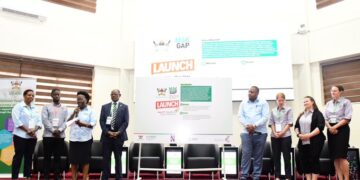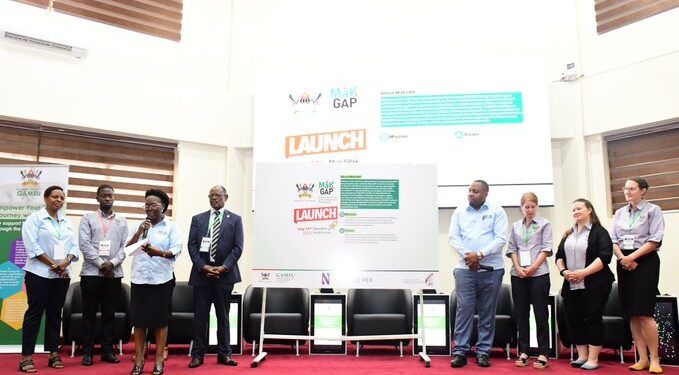Makerere University has officially launched the Makerere Grants Administration Professionals (MakGAP), a landmark initiative aimed at elevating grants administration to global best practice standards within the institution and across its partner universities in Uganda and the wider region.
The launch, officiated by the Vice Chancellor, Professor Barnabas Nawangwe, marked the climax of a four-day training workshop on Grants Administration and Management under the Expanded Strengthening of Makerere University’s Research Administration Capacity (E-SMAC) G11 Programme, held from July 14th to 17th, 2025, at the School of Public Health Auditorium.
The training was facilitated in partnership with the Robert J. Havey Institute for Global Health at Northwestern University and funded by the U.S. National Institutes of Health (NIH), National Institute of Allergy and Infectious Diseases (NIAID). Over 150 participants from across Uganda and beyond attended the workshop, aimed at building capacity in grants administration among faculty, grant managers, and administrators.
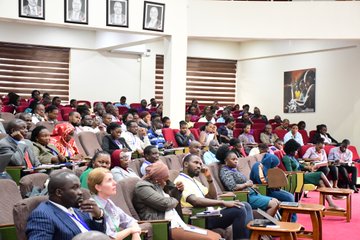
Professionalising Research Administration
In his remarks, Prof Nawangwe praised the Principal Investigator, Mordecai Tayebwa and the project team for securing the competitive NIH grant and spearheading the initiative. He described the launch of MakGAP as a significant step towards institutionalising professionalism in grants management at Makerere.
“Research and innovation are the engines of development. Makerere’s future as a leading research university depends not just on our academics but on the strength of our research administration systems. MakGAP will ensure we uphold accountability, compliance, and excellence in managing research grants,” said Prof Nawangwe.
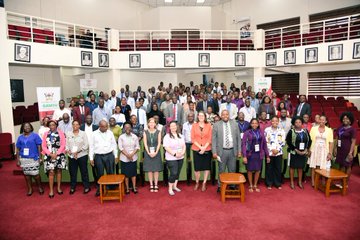
Highlighting Makerere’s remarkable growth in research outputs — from 700 publications annually to over 1,900 today — Prof Nawangwe emphasised the crucial role of robust grants management structures.
He also cautioned that poor grants management by even a single individual could jeopardise the university’s reputation and partnerships. “We must account for every dollar properly because this is taxpayers’ money from other countries. Failure is not an option,” he warned.
“We cannot move Africa out of poverty without research and innovation. No amount of oil, coffee or gold will move us out of poverty. We must innovate to solve our problems and improve our people’s lives. Together, through collaboration and professional research management, we can make this a reality.”
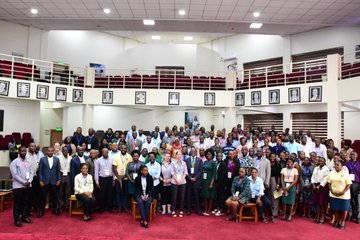
Regional Collaboration for Shared Growth
The training attracted participants from a wide range of institutions, including Kyambogo University, Uganda Christian University (UCU), Mbarara University of Science and Technology (MUST), Soroti University, Kabale University, Busitema University, Gulu University, BRAC University, and several health research institutions such as the Infectious Diseases Institute (IDI), Joint Clinical Research Centre (JCRC), and the Ministry of Health Uganda.
Professor Sylvia Antonia Tamusuza, Head of the Grants Administration and Management Support Unit (GAMSU) at Makerere, underscored the workshop’s importance in building a professional community of practice. “MakGAP is designed to foster peer mentorship, enhance compliance, and promote transparency. Our mission is to empower grants administration professionals through capacity building and networking,” she said.
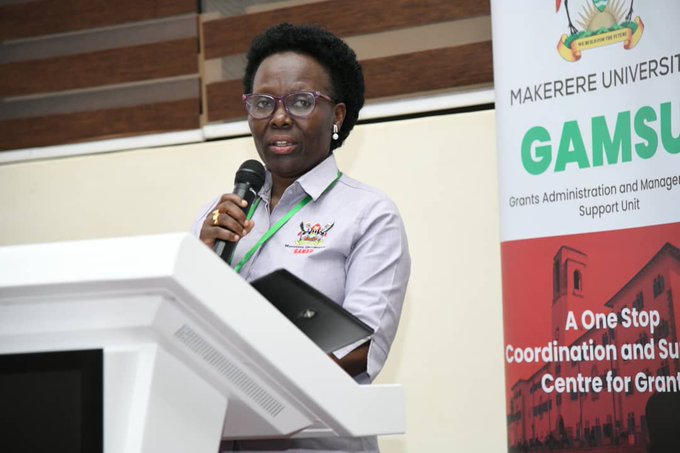
Bridging Global and Local Best Practices
The four-day training covered critical areas including proposal development, budgeting, compliance, sub-award management, and post-award processes. Participants also worked on developing Standard Operating Procedures (SOPs) to operationalise Makerere’s Grants Management Policy.
Facilitators from Northwestern University — Kate Klein, Bethany Ekesa, and Elizabeth Nicole Christian— lauded the initiative as a model for Africa. They emphasised the need to formalise the profession of research administration across the continent, mirroring the more established systems in North America.
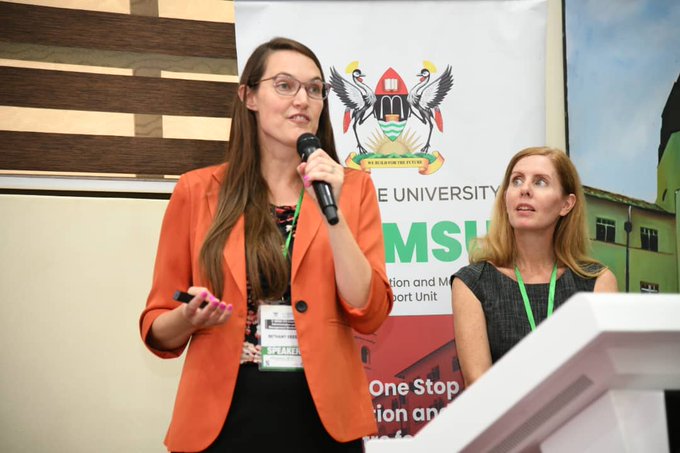
“Without strong grants management systems, research cannot thrive. Makerere’s efforts are paving the way for Africa’s universities to build the human capital needed to drive development,” said Kate Klein, Senior Associate Director at Northwestern’s Institute for Global Health.
Bethany Ekesa encouraged participants to tap into global networks like the Society of Research Administrators International (SRAI) for continued professional growth. “These platforms offer networking, mentorship, and learning opportunities that are essential for advancing careers in research administration,” she noted.
A Commitment to Sustainable Excellence
Speaking on behalf of the Vice Chancellor during the opening of the workshop, Acting Deputy Vice Chancellor (Finance & Administration), Prof. Winston Tumps Ireeta, hailed the E-SMAC initiative as a “fruit of hard work” and urged participating universities to adopt structured grants policies to strengthen research systems.
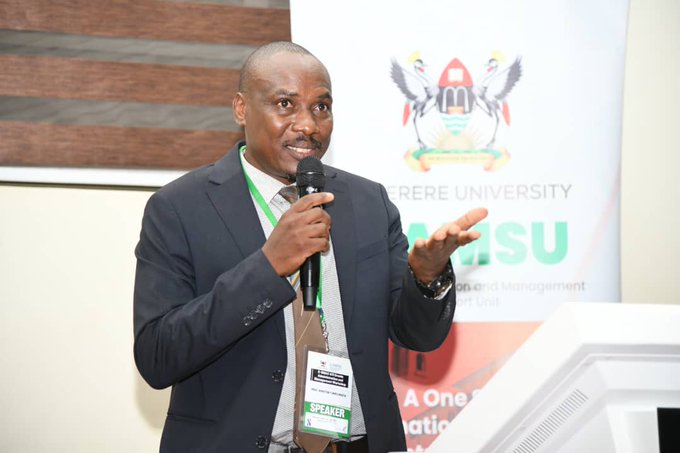
“What began as a small idea less than five years ago has now blossomed into a powerful force transforming grants administration at Makerere and beyond,” he said.
Certificates were awarded to participants after the workshop, marking their successful completion of the training.
MakGAP will operate under GAMSU and is expected to: build a community of practice within Makerere and beyond, facilitate professional development through mentorship and training, enhance compliance with donor and institutional policies, and promote collaboration across institutions and borders.
